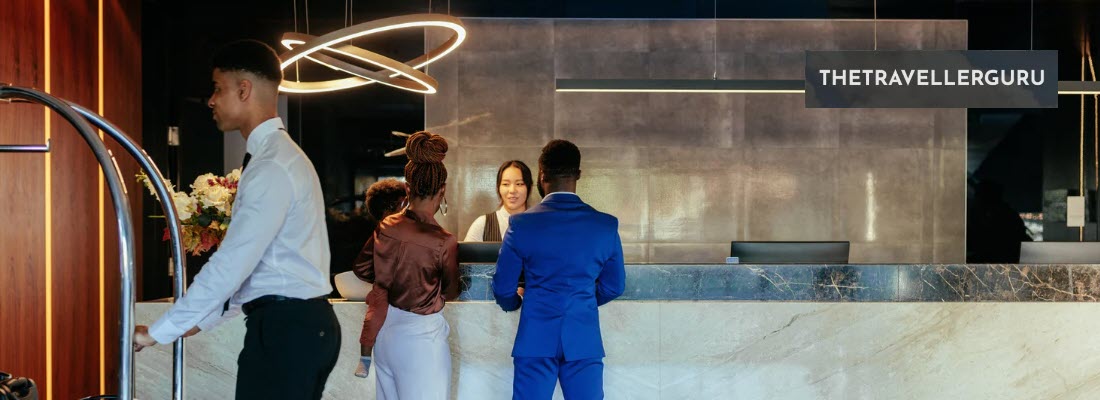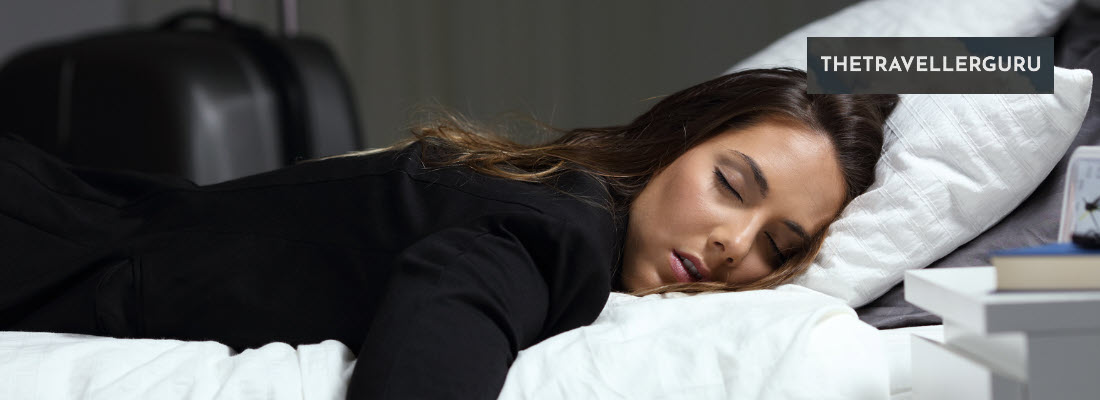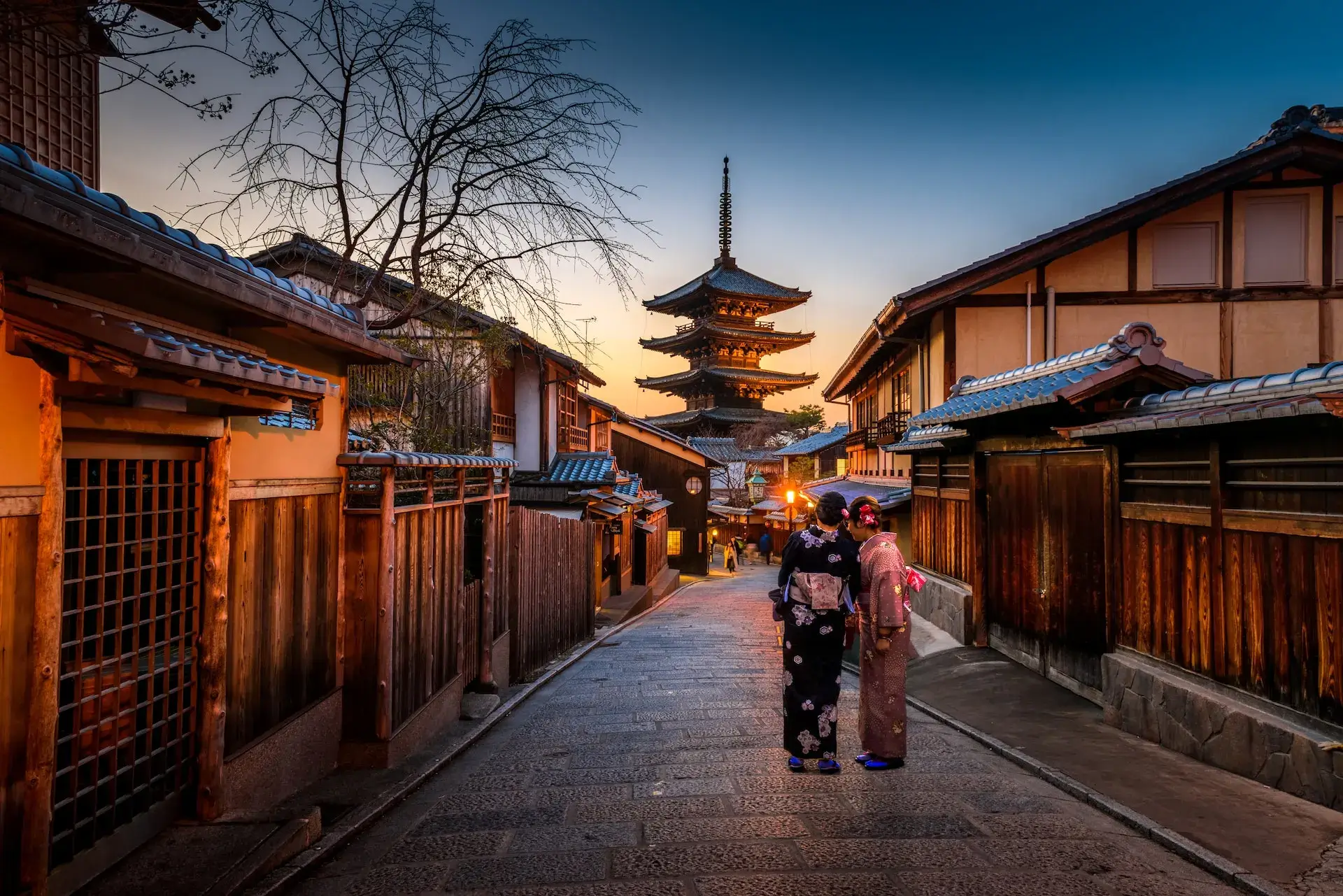Hey there travel enthusiasts and welcome to my post where I will check out some my 8 safety tips for staying in hotels this year. When it comes to traveling and exploring new destinations, hotels serve as temporary homes, providing comfort, convenience and a sense of security.
However, while designed to be safe environments, Hotels can present unique challenges that require your attention and vigilance. By familiarizing yourself with potential risks and adopting precautionary measures, you can mitigate hazards, minimize vulnerabilities, and enhance your overall hotel experience.
Safety Tips for Staying in Hotels
Whether you’re a frequent traveler or embarking on a much-awaited vacation, let’s check out some valuable safety tips when staying in hotels.
Book Your Favorite Hotel Here!
Check out these: 7 Tips for Getting the Best Deals When Booking Hotels
1. Secure your room
Implementing simple yet effective precautions can provide you with peace of mind and help ensure a safe and enjoyable stay. Here are several tips to help you secure your room in a hotel:
- Choose a reputable hotel: Selecting a well-established and reputable hotel can significantly reduce security risks. Look for accommodations that have positive reviews and good security measures in place.
- Opt for higher floors: Request a room on a higher floor if possible. Higher floors are generally safer as they are less accessible from the outside and offer fewer entry points for unauthorized individuals.
- Lock the door: Always lock your hotel room door whenever you are inside or leaving the room. Use the deadbolt lock and chain lock, if available, to provide an extra layer of security.
- Use the peephole: Before opening the door to anyone, especially if you weren’t expecting someone, use the peephole to verify the identity of the person outside. If in doubt, call the front desk to confirm the person’s credentials.
- Keep valuables secure: Utilize the hotel room’s safe, if provided, to store your valuables such as passports, cash, jewelry, and electronics. It is generally more secure than leaving them unattended in your room.
- Secure your belongings: Use your luggage locks or invest in portable travel locks to secure your bags, especially if you have valuable items inside. This can deter unauthorized access and minimize the risk of theft.
- Maintain privacy: Avoid discussing personal information or your room number within earshot of others. Be cautious when sharing details about your stay with strangers, as it could potentially compromise your safety.
Check out these: Tips for Keeping your Money Safe when Travelling
2. Be cautious with strangers
While hotels are generally safe environments, it’s crucial to exercise caution and be aware of potential risks associated with interacting with unfamiliar individuals. Start by being mindful of the personal information you share with strangers, whether it’s in the hotel or its surrounding areas. Avoid discussing details about your room number, travel plans or any sensitive personal information. This helps prevent potential breaches of your privacy and security.
Hotel staff members are typically trained to provide assistance and ensure your comfort. However, it’s still important to exercise caution. If someone claiming to be a hotel employee knocks on your door unexpectedly, use the peephole to verify their identity before opening the door. If in doubt, call the front desk to confirm their credentials.
As secure as hotels are, they still often have various public areas such as lobbies, restaurants and bars where strangers and scammers will congregate. Some may approach you with offers, deals or requests for personal information so be cautious of individuals who seem overly friendly or insist on gaining your trust too quickly.
Secondly here, this is where most property can go missing as well so keep an eye on your belongings and never leave them unattended. Be cautious when accepting drinks or food from strangers as well.

3. Keep emergency information handy
When staying in a hotel, not all risk is do to with theft. Hotels can be a labyrinth of hallways, lifts and strange doors so it’s important to gain an understanding of emergency exit routes etc. Start here by familiarizing yourself with the nearest fire exits and stairwells and take a few moments to walk through the escape routes, paying attention to any signage or instructions provided by the hotel.
Keep the hotel’s emergency contact information accessible including the front desk or reception phone number which can be dialed in case of an emergency. Program this number into your mobile phone or keep it written down in a place where you can easily find it, such as your wallet or purse.
Another essential piece of information to have is the local emergency services number. In many countries, this is typically 911, but it can vary depending on your location. Research and note down the correct emergency services number for the area you are staying in.
You might also want to consider downloading a local map or using a map application on your smartphone to familiarize yourself with the surrounding area. Knowing the nearby hospitals, police stations, or medical facilities can be valuable information during an emergency as well.
4. Be mindful of fire safety
We touched on this above however as we know, fires can pose a significant risk to your safety and the safety of other guests. In addition to emergency procedures we have already discussed, ensure that you have a clear understanding of the hotel’s evacuation plan in case of a fire. T
his plan typically includes information about the nearest emergency exits, designated assembly areas, and evacuation routes. Review the plan and discuss it with your travel companions, ensuring everyone knows what to do in case of a fire.
Take note of the fire alarm system in your room and familiarize yourself with the sound of the alarm so that you can recognize it in the event of an emergency. If the fire alarm sounds, take immediate action by evacuating the premises and following the established evacuation routes.
When entering your hotel room, identify the location of the nearest fire exit. This will help you quickly find your way out in case of an emergency. Be aware of alternate exits as well, in case the nearest one is blocked or unsafe to use.
If you encounter smoke in the hotel corridors or your room, stay low to the ground where the air is less polluted. Cover your mouth and nose with a cloth or clothing to reduce inhalation of smoke. Crawl to the nearest exit if it is safe to do so.
Never use elevators during a fire emergency. Elevators can malfunction or trap you in a hazardous situation. Always use the stairs when evacuating the building. If you have mobility issues or are unable to use the stairs, notify the hotel staff in advance so they can assist you with a personalized evacuation plan.
Keep your room key card or key readily accessible near your bed or in a designated spot. In case of a fire, you may need to evacuate quickly, and having easy access to your room key will ensure you can exit the building without delay.
Book Your Favorite Hotel Here!

5. Use hotel facilities wisely
As with public areas, it is often out-of-room facilities in hotels where visitors and guests can get hurt or have belongings stolen. Hotel facilities offer convenience and amenities, but it’s important to utilize them in a manner that ensures your safety and the safety of others. Here is a thorough discussion on this topic:
- Follow rules and guidelines: Familiarize yourself with the rules and guidelines of the hotel and its facilities. This includes pool areas, fitness centers, spa facilities and any other amenities provided. Adhere to the posted rules, such as age restrictions, proper attire and time restrictions to avoid accidents or conflicts.
- Be cautious in pool and spa areas: If the hotel has a pool or spa, exercise caution when using these facilities. Follow safety guidelines such as not swimming alone, avoiding diving in shallow areas and keeping a close eye on children. Take note of any signage or warnings related to pool depth, slippery surfaces, or other potential hazards.
- Use fitness centers with care: If you plan to use the hotel’s fitness center, be mindful of safety precautions. Familiarize yourself with the equipment and use it in accordance with the instructions provided. Avoid overexertion or attempting exercises that are beyond your capability to prevent injury. Clean and sanitize equipment before and after use, following any hygiene protocols provided.
- Practice caution in shared areas: Hotels often have shared areas such as lounges, business centers or game rooms. When using these spaces, be aware of your surroundings and the presence of others. Keep your personal belongings secure and never leave them unattended. Respect the privacy and personal space of other guests.
- Report maintenance issues: If you notice any maintenance issues or hazards in hotel facilities, promptly report them to the hotel staff. This could include broken equipment, loose handrails, slippery surfaces or any other potential safety concerns. By reporting such issues, you contribute to the overall safety of the hotel environment.
6. Stay informed about local laws and customs
Prior to your journey, take the time to research the local laws and customs of your destination. Learn about any specific regulations or restrictions that may apply to activities such as photography, dress codes, public behavior or consumption of alcohol. Understanding the legal framework and cultural norms will help you adjust your behavior accordingly.
Each destination has its own unique customs and traditions. It is important to respect and adhere to these customs to show cultural sensitivity and avoid causing offense. Familiarize yourself with local practices related to greetings, gestures and social interactions. For example, in some cultures, it may be customary to remove your shoes before entering a place of worship or someone’s home.
If you have any questions or concerns about local laws or customs, do not hesitate to consult with the hotel staff. They are usually familiar with the local environment and can provide valuable advice or guidance to ensure your safety and adherence to local norms.

7. Trust your instincts
Your instincts often provide subtle cues and information that may indicate potential risks or dangers. By listening to your gut feelings and acting upon them, you can enhance your personal safety and make informed decisions.
When you arrive at the hotel and throughout your stay, be mindful of your surroundings. Observe the people, the atmosphere and any unusual or suspicious activities. If something feels off or raises your suspicions, trust your instincts and proceed with caution.
Your intuition can be a powerful tool in assessing a situation. If you have a gut feeling that something is not right, don’t dismiss it. Pay attention to any feelings of unease, discomfort, or a sense that something is out of place. Your intuition is a valuable source of information and can guide you toward making safer choices.
Trusting your instincts can serve as an invaluable tool for maintaining your personal safety while staying in hotels. By staying aware of your surroundings, listening to your intuition, and taking appropriate action when necessary, you can enhance your security and enjoy a safer hotel experience.
8. Be careful of the WiFi
Hotel WiFi networks, like any public WiFi network, are potentially susceptible to various security issues. This is because they are often unencrypted, meaning the information you send and receive may be visible to others on the same network if they have the right tools and knowledge.
Here are some of the risks associated with using hotel WiFi:
- Man-in-the-middle attacks: In this type of attack, the hacker intercepts communication between two parties to gain access to personal information.
- Snooping and sniffing: Cybercriminals can use special software kits and devices to spy on WiFi signals. This allows them to access everything from email logins to credit card information.
- Malware distribution: Unsecured WiFi networks can be used to distribute malware, which can infiltrate your device and potentially gain access to personal and sensitive information.
- Rogue WiFi Networks: These are “Evil Twins”, where someone sets up a network that appears to be the legitimate hotel WiFi. Once you connect to these networks, they can monitor your activity or even direct you to false versions of websites to collect login details.
To help stay safe while using hotel WiFi or any other public WiFi, here are some tips:
- Use a VPN: A Virtual Private Network (VPN) encrypts your internet connection, making it secure and protecting your privacy.
- HTTPS: Ensure that the sites you visit are encrypted. You can tell this if the URL starts with “https” rather than “http”.
- Two-factor authentication (2FA): Enable 2FA for all important accounts (like email or banking). Even if a hacker gets your password, they’d still need your second factor to access your account.
- Avoid accessing sensitive information: If possible, avoid logging into accounts that contain sensitive information (like your bank account) when connected to public WiFi.
- Keep your devices updated: Regularly update your devices and apps. Updates often contain security patches that protect against known vulnerabilities.
- Use Antivirus software: Keep your device safe by installing and regularly updating a good antivirus software.
Remember, while these steps can significantly reduce your risk, nothing is foolproof when it comes to online security.
FAQs
How can I ensure the safety of my belongings in a hotel room?
To ensure the safety of your belongings in a hotel room, utilize the hotel’s safe deposit boxes to store valuable items such as passports, cash and electronics. If a safe is not available, consider using a portable travel safe or locking your belongings in your suitcase. Avoid displaying expensive items and never leave them unattended in your room.
How can I ensure my personal safety when staying in a hotel?
To ensure personal safety in a hotel, always lock your room door and use the deadbolt when inside. Avoid sharing too much personal information with strangers and be cautious when inviting visitors to your room. Keep emergency contact numbers handy, familiarize yourself with the hotel’s security features and report any suspicious activity to hotel staff promptly.
Conclusion
And there they are, my hotel safety tips to enhance your upcoming vacation. I would be pleased to know how this article helped you, and as usual, let me know of your experiences here.
Also, please do not hesitate to comment below if you have any questions, concerns, or corrections, or would like me to check anything else out for you.
Until next time.
Have fun
Paul






